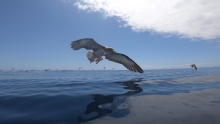Scientists have uncovered how space travel profoundly alters the gut microbiome, yielding insights that could shape future space missions.
The groundbreaking study, led by a McGill University researcher in collaboration with University College Dublin (UCD), NASA’s GeneLab and an international consortium, offers the most detailed profile to date of how space travel affects gut microbes.







